Estimated Taxes: A Complete Guide for the Small Business Owner
What are estimated taxes?
Estimated taxes, which are also called estimates or quarterly taxes, are basically the IRS’s way of collecting tax on the money that self-employed people and small businesses earn throughout the year. Since you’re not an employee with tax withholding taken out of your paycheck, estimated taxes are the DIY version of this.
The payments are made throughout the year and they go toward your final tax bill. Think of these payments as estimated installments. The great thing about paying in installments is that your tax bill is spread throughout the year, making it easier on your finances than one big payment!
Who has to pay?
According to the IRS, “Individuals, including sole proprietors, partners, and S corporation shareholders, generally have to make estimated tax payments if they expect to owe tax of $1,000 or more when their return is filed.”
Generally, if your business is relatively profitable and you are self-employed, you can bank on paying estimated taxes.
How do they work?
You make four payments at four different times throughout the year. At the end of the year, you file your taxes. Once you do this, you find out how much you owe, and whether you under- or over-paid in your installment payments.
If you underpaid, you need to pay to make up the difference at tax time. If you overpaid, you can opt for a refund, or apply the overage to your next installment.
How much do I owe?
The first option is to base your payments on the previous year’s taxes. After filing, you should receive a form that tells you how much your installments should be. This works well if you have consistent income year to year.
However, many people experience fluctuations in income. If this is the case for you, calculating your payments in real time is a better option. This can help you avoid vastly underpaying on your installment payments and ending up with a huge bill at tax time.
How do you calculate in real-time? First, figure out your net income for the period of your estimated taxes. If you use bookkeeping software, you can run a Profit & Loss report to figure this out. If you don’t, subtract your expenses from your total revenue, like this:
Revenue – Expenses = Net Income
Next, divide your net income by 30%. You might ask, why so high?
A portion of your estimated tax payments cover your self-employment tax, which is 15.3% (read more on the IRS website). Your payments also cover your income tax. Your exact income tax will depend on your tax bracket, but 15% is a good estimate for most people. If you use Profit First or money mapping, then this is the amount that you save in your tax account.
However, if you know you’re in a higher (or lower) tax bracket, you can adjust your percentage accordingly. For people in higher brackets, try dividing by 35% instead. For people in lower brackets, 25% may suffice.
Let’s look at an example: A photographer has a net income of $20,000 for the first quarter of the year. They divide their net income by by 30% and get $6,000. That’s their estimated tax payment for the first quarter.
$20,000 x .30 = $6,000
You might be wondering how somebody can make sure they have $6,000 laying around every quarter. The answer is to save for your taxes incrementally.
This is where a strong money system comes in. The Profit First methodology and money mapping are both methods of ensuring that you’re regularly saving for taxes, ideally every month.
How much should you save each month? We recommend saving 10-15% of all revenue and setting it aside in a separate account. If you are just getting started and this doesn’t feel feasible, even 5% will help you avoid the surprise of a large tax bill.
When the quarterly deadline rolls around, all you need to do is transfer the money in this account into your checking account and make your payment.
How to pay?
You can pay online or write a check. Here’s more information from the Franchise Tax Board (California-specific) and the IRS.
When are payments due?
It’s important to pay estimated taxes on or before the due date. Otherwise, you may receive a penalty.
Check with your state requirements to see when your payments are due and how much they should be (in terms of percentage of your income). If you are in California, I have the Franchise Tax Board link for you right here.
Want further reading? Here are two great articles I recommend for further reading and resources:
- Everything You Need to Know About Estimated Taxes by Andi Smiles
- Freelancer’s Guide to Estimated Quarterly Taxes on Wherever Writer
You can also get in touch and schedule a free 15-minute Financial Self Care Consultation with me if you’d like to work with a guide to get your business finances on track. 

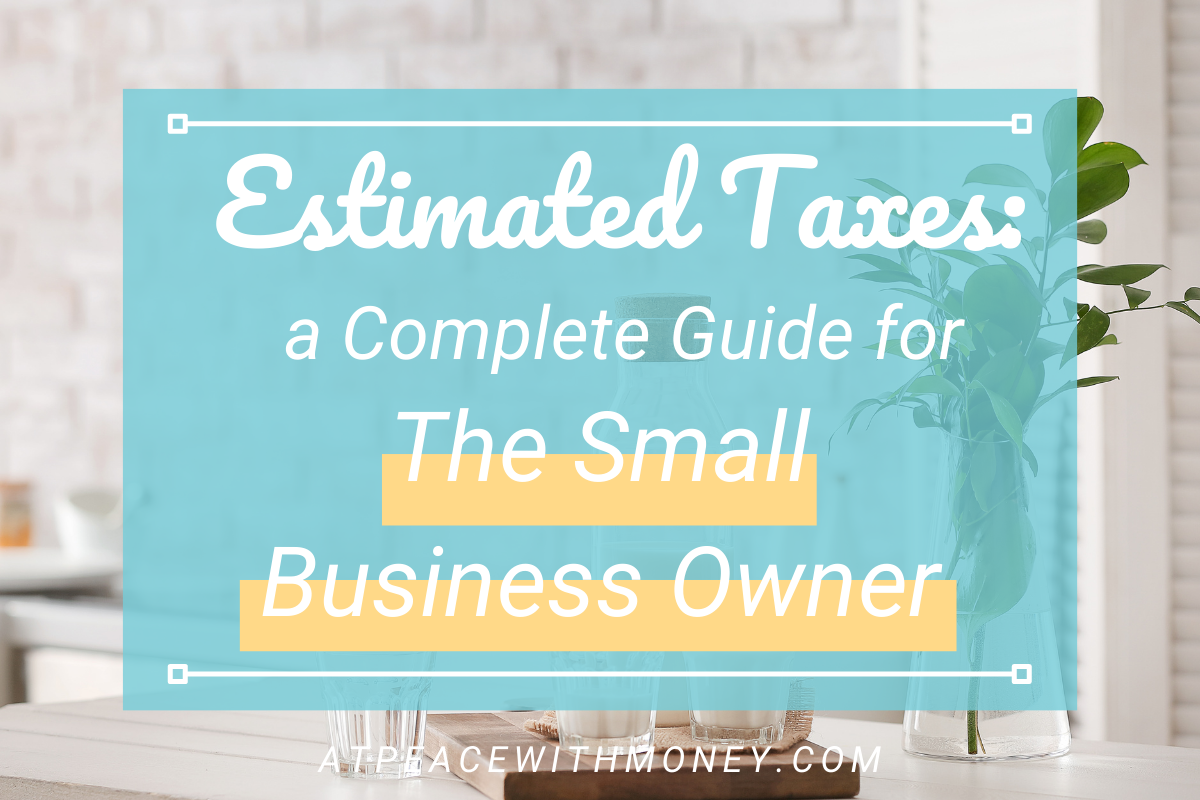
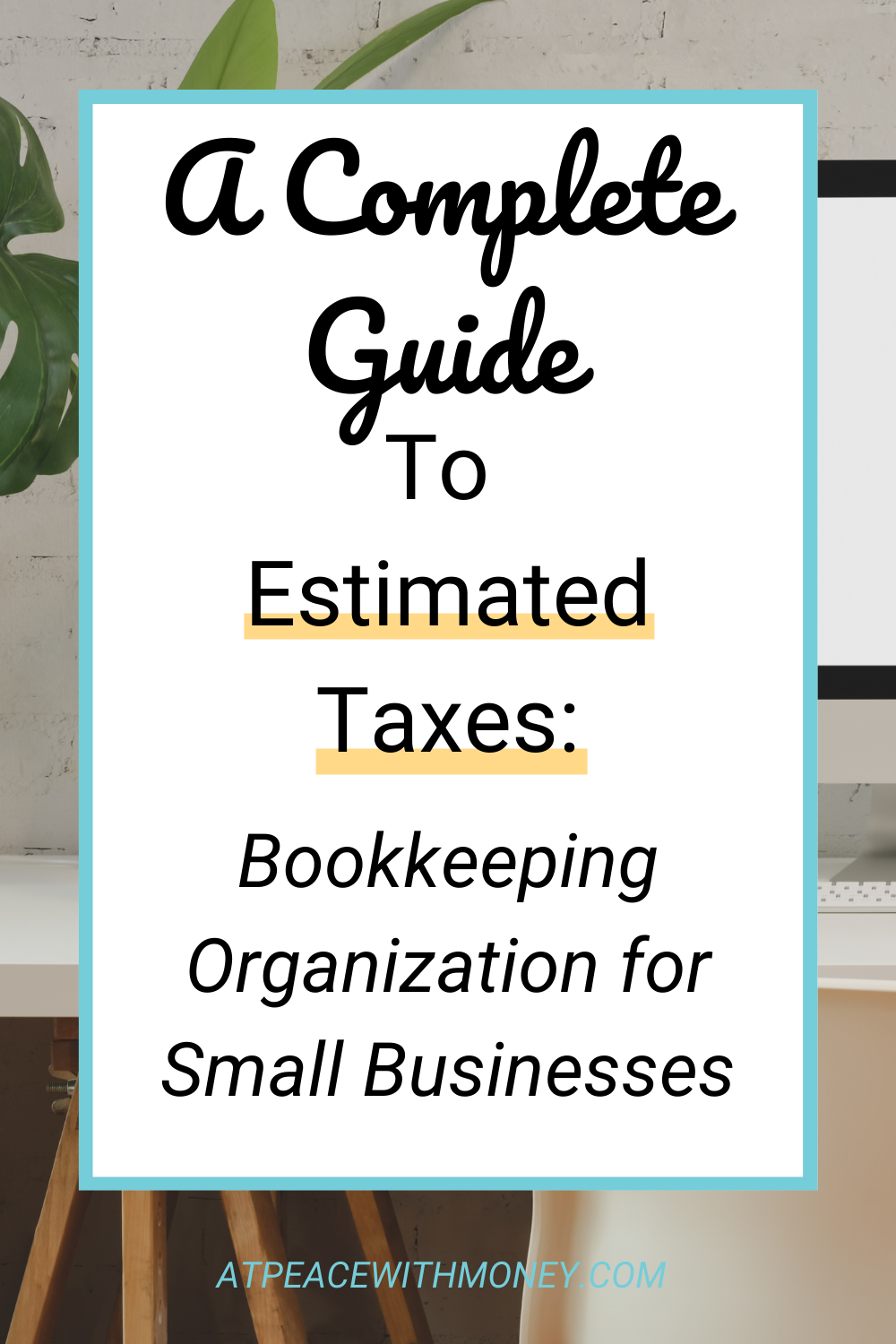
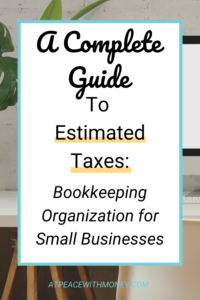










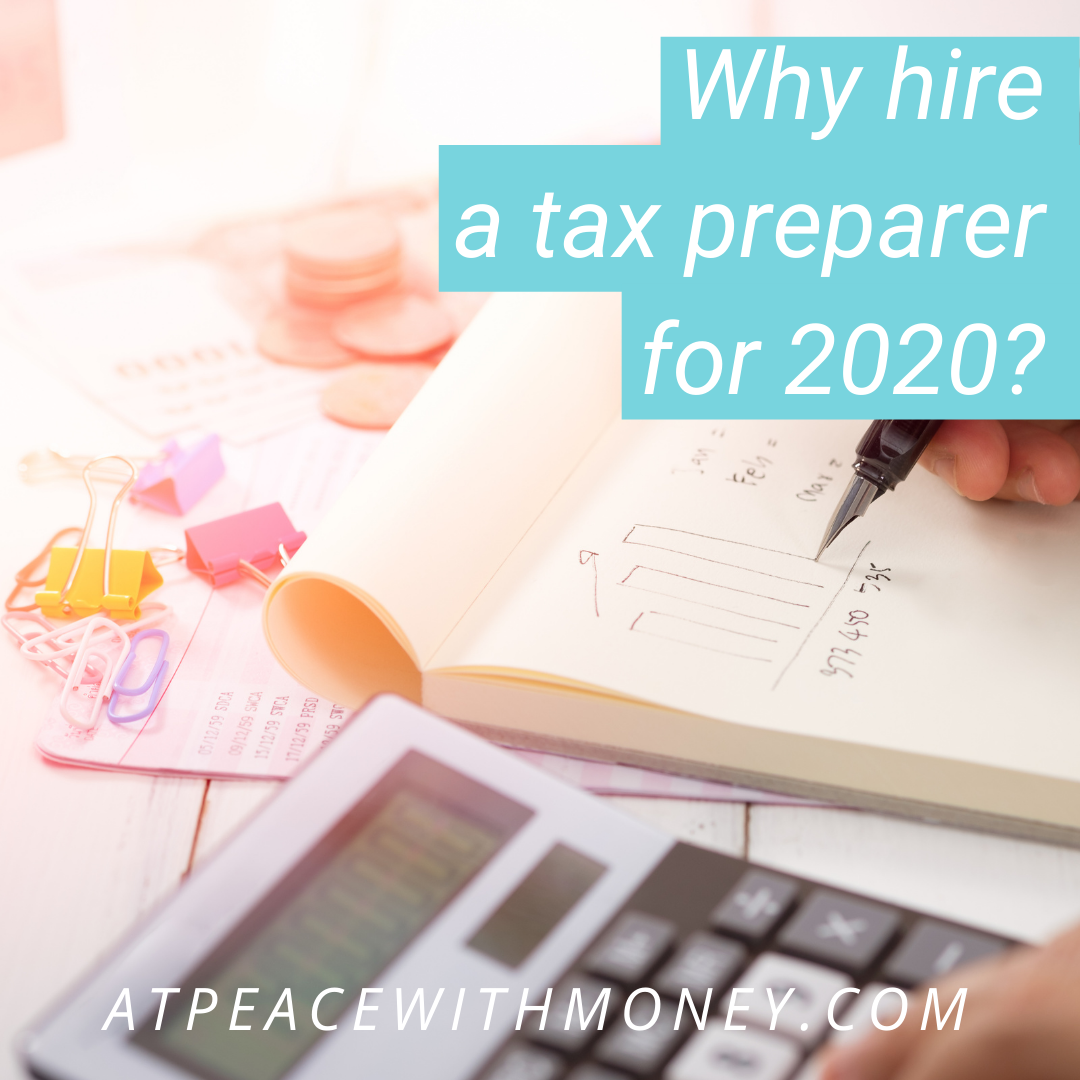

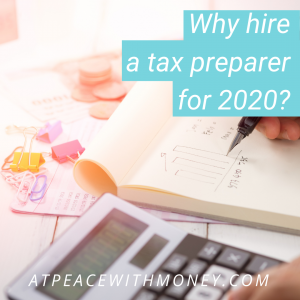 things they get trained on are just the types of things small business owners often miss or botch on their own taxes, simply because they don’t know what they’re missing.
things they get trained on are just the types of things small business owners often miss or botch on their own taxes, simply because they don’t know what they’re missing.
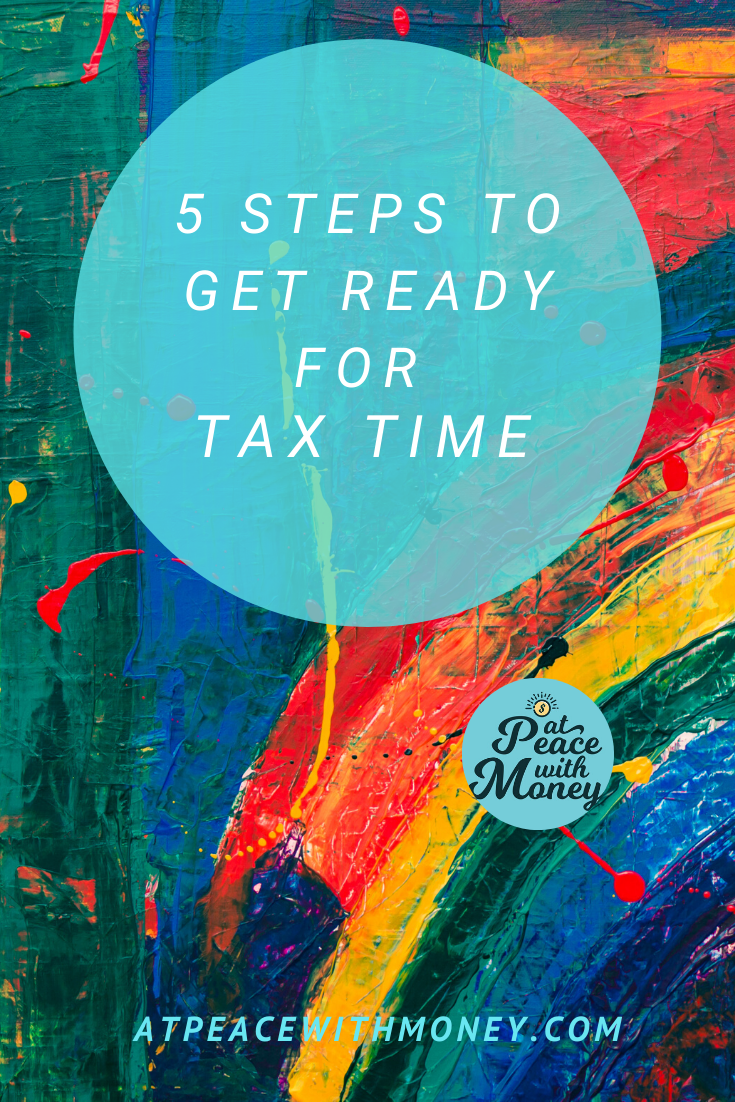
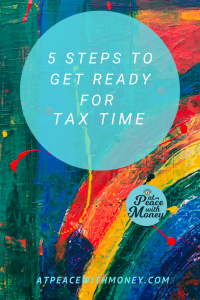 #4 – You should have received all of your tax mailings by mid-February. If your tax preparer is going to want everything in electronic form (or you just want to stay super organized) scan all of your paper statements and add them to your 2017 Tax Documents folder.
#4 – You should have received all of your tax mailings by mid-February. If your tax preparer is going to want everything in electronic form (or you just want to stay super organized) scan all of your paper statements and add them to your 2017 Tax Documents folder.


 Earlier in this article, I mentioned that a financial planner can be a good reference, but another option is to simply meet with a planner at a firm as needed. I had one client who, when planning for retirement, made one appointment at a firm and got all her questions answered. No commitment needed, and a good source of advice.
Earlier in this article, I mentioned that a financial planner can be a good reference, but another option is to simply meet with a planner at a firm as needed. I had one client who, when planning for retirement, made one appointment at a firm and got all her questions answered. No commitment needed, and a good source of advice.



 My second reason for scheduling a bookkeeping review with a professional is so that someone with a trained eye can go over your books and help you discern where, when, and from what you made the most money. This kind of insight is invaluable to any small business, especially if your goal is growth. Your financial records hold this info. Work with someone willing to help you find it! For more about finding and working with a bookkeeper, check out
My second reason for scheduling a bookkeeping review with a professional is so that someone with a trained eye can go over your books and help you discern where, when, and from what you made the most money. This kind of insight is invaluable to any small business, especially if your goal is growth. Your financial records hold this info. Work with someone willing to help you find it! For more about finding and working with a bookkeeper, check out 


 #5 – Grab a copy of last year’s tax return and review the entries you had last year. Or if you have a digital file from last year, compare the statements with the information you have for this year. This can jog your memory so you know you haven’t missed anything. The last thing you want is to have to file a corrected tax return because you left something out, so just take the time and make sure you’ve got all of your information.
#5 – Grab a copy of last year’s tax return and review the entries you had last year. Or if you have a digital file from last year, compare the statements with the information you have for this year. This can jog your memory so you know you haven’t missed anything. The last thing you want is to have to file a corrected tax return because you left something out, so just take the time and make sure you’ve got all of your information.